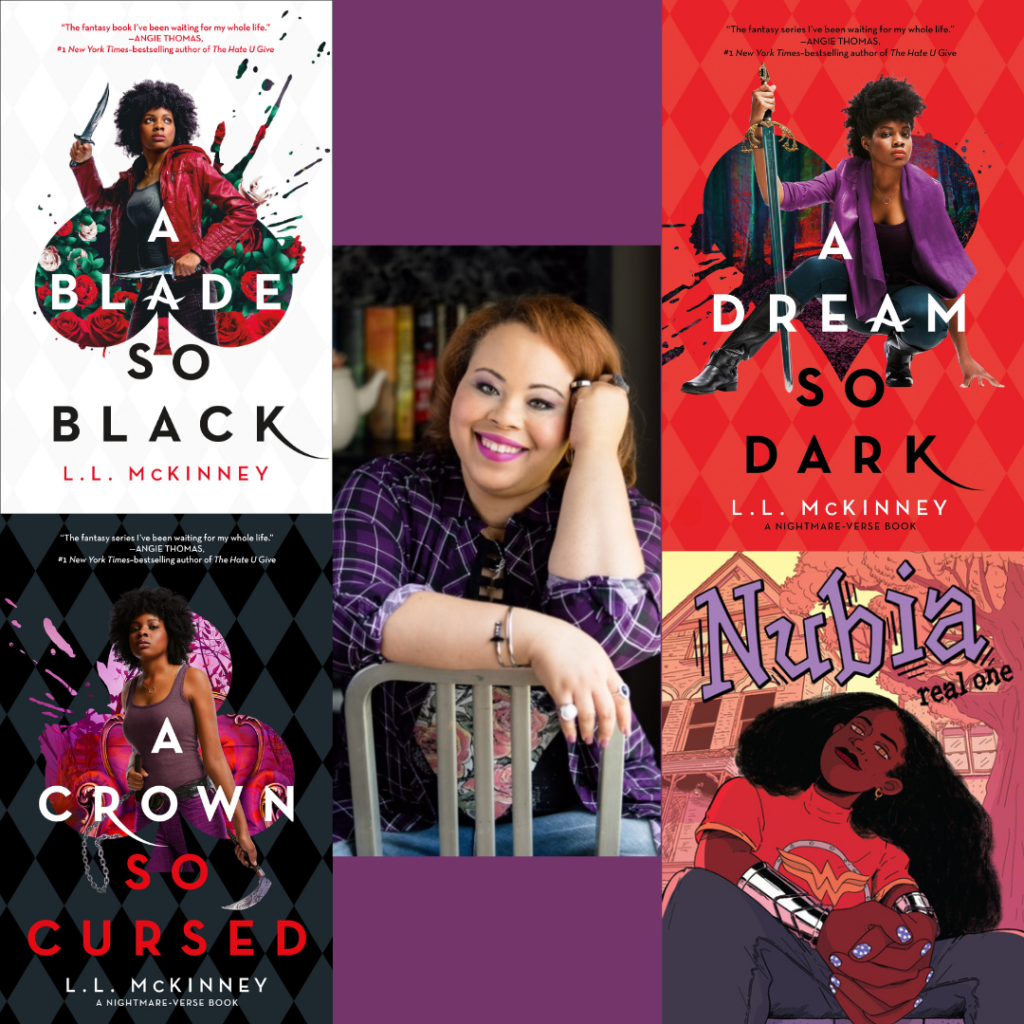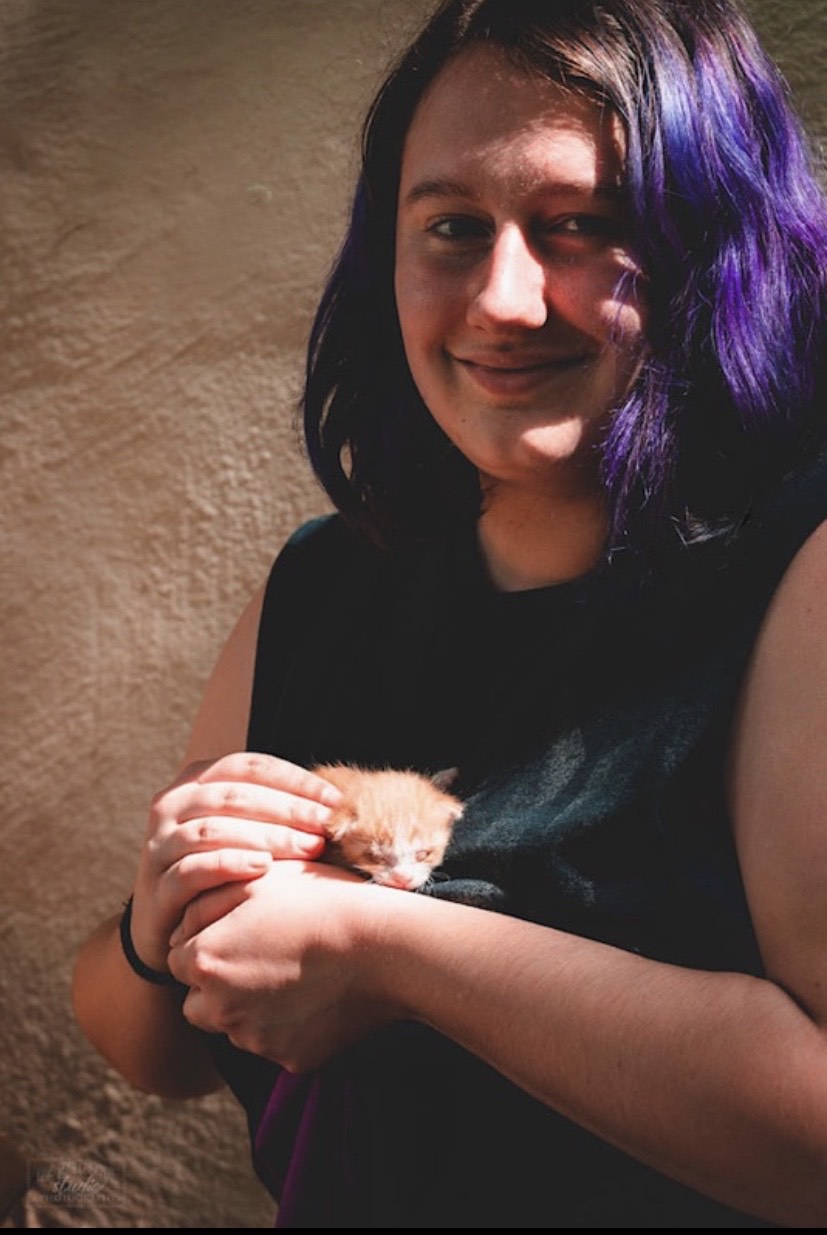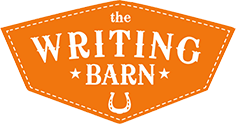An interview by Hannah Roark, Writing Barn Intern
I was recently given the opportunity to interview L.L. McKinney, author of the Nightmare-Verse trilogy and one of the writers for the A Phoenix First Must Burn anthology. The final installment of the Nightmare-Verse trilogy, A Crown so Cursed, will be released April 13th, 2021. In addition, she will also be releasing a graphic novel in February of 2021 about Nubia, a black girl blessed with Amazonian strength (a la Wonder Woman) who has to juggle societal racism, her desire to be a hero, and being a teenage girl.

What inspired you to write A Blade So Black?
Of course, there’s the inspiration of wanting Black kids reading today to see a Black girl on the cover of a book in this genre, but literally? The Winchesters and Questioning Disney’s choice. I was watching Supernatural reruns; they were making Buffy jokes or something. Earlier Disney had announced the live action Alice in Wonderland. After my reaction of “no one asked for this….” I started thinking what a live Alice might look like. And that collided with that episode I had been watching. Get me finally giving myself permission to be the hero and BOOM! Book.
Who are some other YA authors that you admire and read for inspiration?
Let me just go ahead and say that if you’re not reading the Black women out there doing the thing in YA? You’re missing out. Too many to name, and I’m not about to get in trouble in these twitter streets for forgetting someone, ha!
What is your writing process like? Do you start with an outline before you begin writing or do you go with the flow and write whichever scenes come to you in the moment?
It depends! Sometimes I outline, though they’re not very detailed. The most they tend to be is like a paragraph or two per chapter just saying what happens. Sometimes, most of the time, I don’t outline at all. I tend to know the ending, or as close to the end as I can get, and other scenes I want to happen leading up to that ending. Then I fill in the gasps.
Unless it’s a comic or a graphic novel. Those I outline every time.
In your opinion, what are the most important aspects of a story?
Authenticity. If you can get the story from the source, from an author of that background, that should be given preference and priority. After that, I don’t necessarily hold anything higher than anything else exactly. They all work together and build on top of each other in a way that can’t be divorced from each other.
What came first, Alice or her world?
They actually showed up together! The first scene I wrote, which actually shows up in part in the book, was Alice sitting in the forest, playing bait for a monster. I didn’t really have a grasp on how she got there and what would happen after—I didn’t know what kind of monster either, that came later—but I knew it was late, it was chilly, and she was irritated. And Hatta was there. He was a close second/third.
Which was your favorite scene to write in A Blade So Black? Which was the hardest?
All of the fight scenes, pretty much. And the scenes with any type of banter. I love bloodshed and banter. That could probably be the name of a band or books store of some sort. Where the bloodshed comes in is anyone’s guess on that one. Papercuts?
How much of your original draft made it into the published novel?
I would say….70%? Give or take a few. It wasn’t all cuts, though. It was part cuts, part revision, and then some additions that weren’t in the original. For instance, Chess was someone completely different in the original version, but after talking with my editor, we ended up with who he is now.
Patrice Caldwell is going to be on our upcoming faculty for our Rainbow Writer Weekend (for LGBTQIA+ writers) and we couldn’t be more thrilled! What was your favorite part about working on the anthology, A Phoenix First Must Burn?
Being able to write about a Black girl and her righteous fury. Patrice really just gave me some nudges here and there regarding story direction and then just let me at it. I was completely free to do what I wanted with the plot and the characters.
What’s it like having Alice’s story come to a close after all this time? Is it hard to leave behind a novel, the world and characters within, or do you easily jump into ‘the next project’?
It’s hard but not, because Alice’s story isn’t over. At least, not completely. It continues after the end of book three, it goes on even if we don’t see what happens. There’s more to her and to Wonderland and the Nightmare-Verse over all that I hope to get to explore someday. So, I don’t really see it as good bye, but more TTFN.
As far as working on the next project, I learned to do that while querying. There are books I wrote before Alice that I had to shelf in that moment. So moving on is never an issue for me. Plus, I can always come back when I want. That’s the great thing about books.
What’s the best piece of writing advice you’ve ever received?
Don’t stop. Seriously. Don’t do it. I stopped counting rejections at 250. I kept getting them for years. You can do this.
About Hannah Roark:
 Hannah Roark is a senior at Southwestern University studying English and Sociology. Growing up all over central Texas, books were her best friend growing up and she has loved writing since she started creating stories for her Barbies to act out at the age of five. Now she spends her days trying to read and write while also cuddling her cat, playing Dungeons and Dragons with friends, and panicking about grad school applications.
Hannah Roark is a senior at Southwestern University studying English and Sociology. Growing up all over central Texas, books were her best friend growing up and she has loved writing since she started creating stories for her Barbies to act out at the age of five. Now she spends her days trying to read and write while also cuddling her cat, playing Dungeons and Dragons with friends, and panicking about grad school applications.
